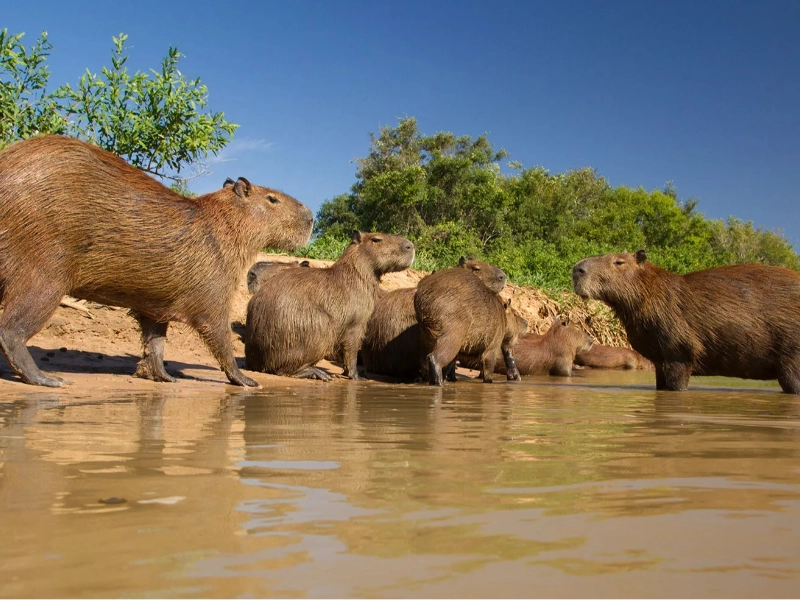15 Fascinating Facts About Capybaras That Will Amaze Even Biologists - #11 Is Mind-Blowing!
Advertisement
15. The Cultural Significance of Capybaras in South America

Advertisement
Capybaras hold a unique place in the culture and traditions of many South American countries. In some regions, they are hunted for their meat and considered a traditional food source, particularly during Lent, when certain Christian communities abstain from other meats. In Venezuela, for example, capybara meat, often referred to as "water pig," is especially popular during this time. However, their cultural significance extends far beyond consumption. In many indigenous traditions, capybaras are featured in myths and folklore. Their social nature has led some communities to view them as sacred animals or symbols of community and cooperation. In modern times, capybaras have become cultural icons in several South American countries. They frequently appear in literature, art, and even as mascots for sports teams. Their gentle and friendly demeanor has also made them beloved characters in children's books and educational materials, where they are used to teach about biodiversity and conservation. As awareness of environmental issues grows, capybaras are increasingly recognized as ambassadors for wetland conservation efforts in South America.
Advertisement
You May Like

